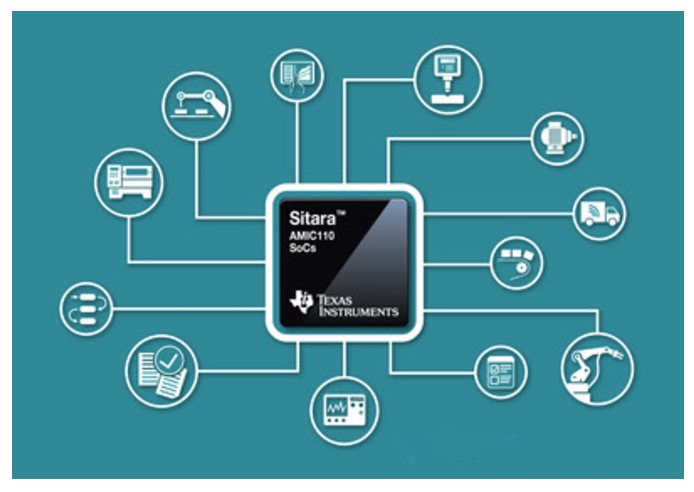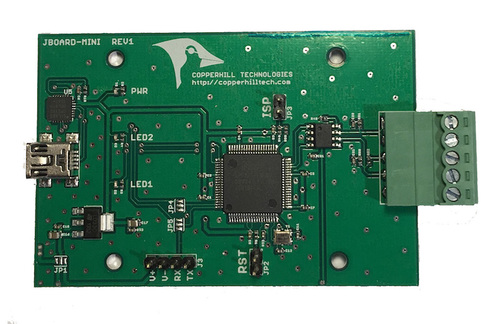Recent Posts
Multi-Protocol Communications Processor Connects CAN Bus To Industrial Ethernet
Posted by on
Texas Instruments (TI) has launched the Sitara AMIC110 system on chip (SoC) featuring more than ten Industrial Ethernet protocols. It comes with CAN connectivity.
The AMIC110 SoC (system-on-Chip) is a multi-protocol industrial communication processor supporting nearly all Industrial Ethernet variants ranging from Profinet via Ethercat and Sercos III to Powerlink. The 300-MHz chip comes with several serial interfaces including CAN, Profibus, UART, and USB. This makes the product suitable for gateway implementations.
Built on the Cortex-A8-based Sitara processor platform that features flexible peripherals, industrial temperature ranges and unified software support, the AMIC110 SoC was developed for industrial designers. It can serve as a companion communication processor to a micro-controller such as TI's C2000. In addition to the AMIC110, the provided reference design showcases the DP83822 PHY component that is suited for Industrial Ethernet applications.
Resources
- AMIC110 Sitara™ SoC datasheet
- AMIC110 Sitara SoC Silicon Errata
- AMIC110 Industrial Communications Engine
- AM335x and AMIC110 Sitara™ Processors Technical Reference Manual
- More Information...
SAE J1939 to USB Gateway
The jCOM.J1939.USB gateway board is a high-performance, low-latency vehicle network adapter for SAE J1939 applications. It allows any host device with a USB COM port to monitor SAE J1939 data traffic and communicate with the SAE J1939 vehicle network.
The board supports the full SAE J1939 protocol according to J1939/81 Network Management (Address Claiming) and J1939/21 Transport Protocol (TP). It is also supported by an extensive programming interface for Windows and Linux/Ubuntu applications, including full C/C++/C# source code for short time-to-market developments.
The strength of the board lies in the fact that the entire SAE J1939 protocol, including all timing requirements, is stored on-chip, thus taking the burden off the main system. The board uses a USB COM port to communicated with the main system, i.e. all data transfer is handled through a standard COM port access. The communication protocol between the board and the main system is well documented and thus allows a porting to any computer system with a USB connection. Working source code libraries exist for Windows (C# under Visual Studio 2102/2013), Linux and its derivatives (C++ using Code::Blocks), and Raspberry Pi (C using the standard gcc compiler).
 Loading... Please wait...
Loading... Please wait...


